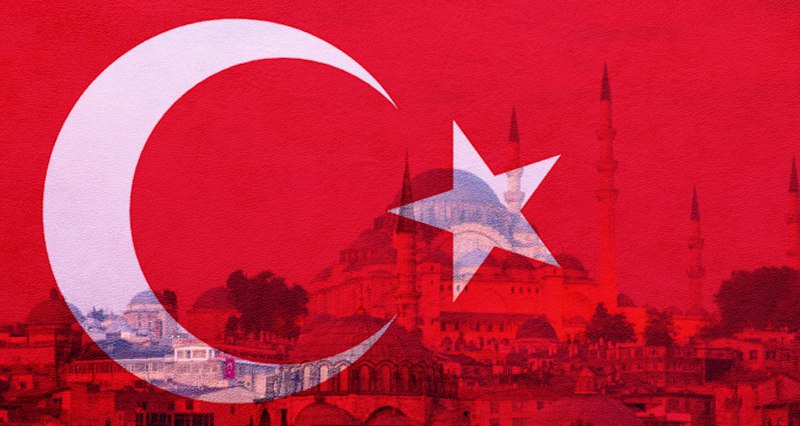Turkey ended the week on a positive note: on April 24, according to the numbers announced by the Minister of Health Fahrettin Koca, for the first time since the beginning of the Coronavirus pandemic, the daily number of people who had recovered from the virus surpassed the number of daily new cases.
One of the important events of the last week was the celebration of the 100th anniversary of the foundation of the Turkish Parliament, the day of National Sovereignty and Children’s day.
Every year, April 23 is celebrated with ceremonies nationwide in the stadiums and on the streets. Naturally, because of the Coronavirus threat, this year, people took their places on their balconies and at their windows to celebrate the national holiday singing the national anthem together..
THE HISTORICAL BACKGROUND OF THE APRIL 23RD
On April 23rd 1920, the Grand National Assembly of Turkey was founded in Ankara under the leadership of Mustafa Kemal Atatürk.
Different political figures with a common opposition to Western occupation took their place in the Assembly.
The foundation of the Assembly is considered as the first step towards the creation of the modern Republic of Turkey. The first speech in the new Assembly was given by its president, the representative from the Sinop province of Serif Bey:
“Honorable members of the Assembly, it is well known that the Capital of the Caliphate and the Government has been occupied in temporary terms by enemy forces, and that our independence has been restricted in every aspect. Submission to these conditions means acceptance of the captivity imposed by the foreign powers. However, the eternally free and independent nation of ours, resolute to exist in absolute independence, has rejected this captivity with an ultimate determination and by gathering its representatives, who brought into being this Grand Assembly of ours. In the name of the speaker of the Grand Assembly and by the help of God, I declare the principles of absolute independence and self-determination of the nation, to the whole world and thereby open this National Assembly.”
The next day, on April 24, the second session of the Assembly was held, and Mustafa Kemal was unanimously elected as the President of the Assembly.
Mustafa Kemal in his speech declared the sovereignty of the nation against the sultan and imperialist powers; “There is no power above this Grand Assembly anymore…”
The first Assembly was the headquarters for the War of Independence against the Western Imperialist powers such as Great Britain, France and Italy, and also against their local collaborators and reactionary powers.
On April 23 1929 upon Ataturk’s proposal, the Turkish Grand National Assembly decreed April 23 a national holiday dedicated to children.
Turkey is the first and only country in the world that celebrates an official “Children’s day”.
TURKISH RESPONSE TO THE SO-CALLED ARMENIAN “GENOCIDE”: PERINCEK CASE
On April 24, just like every year, the government and the parliaments of the Imperialist centers such as the United States commemorate the so-called Armenian “Genocide”.
On April 25, the Turkish Foreign Ministry responded to US President Donald Trump’s statement about the events of 1915 in which he used the Armenian term “Meds Yeghern” meaning the Great Crime.
The Ministry, in their response, said that Trump’s remarks were part of the “subjective” narrative of Armenians trying to turn this issue into a “dogma”.
In the ministry’s statement, Trump’s “claims” were denied, and assessed to be a move to win favor in domestic politics.
The Ministry also noted that Trump’s statement ignored the “suffering” of more than 500,000 Muslims killed at that time by the Armenians, calling for this mindset to be “changed.”
The ministry further noted that Turkey’s proposal to establish a joint historical commission to examine the 1915 events was still on the table.
Turkey had already won the “genocide” battle juridically on October 15th 2015, by the judgement of Grand Chamber of European Court of Human Rights in the Perincek vs. Switzerland case.
The President of the Patriotic Party (which was called the Worker’s Party at that time) publicly denied the Armenian Genocide allegations, and defined these allegations as a “great international lie” during a speech at a conference in Switzerland.
Perincek was found guilty of racial discrimination by a Swiss District court in Lausanne, in March 2007. At the trial, Perincek denied the charge by saying “I have not denied a genocide because there was no genocide in the first place”.
Firstly, Perincek responded saying: “I defend my right to freedom of expression” and appealed the verdict, but the Swiss Federal Court confirmed the sentence.
Perinçek, then appealed for the European Court of Human Rights. At the end of juridical process, the Grand Chamber ruled in favor of Perinçek on October 15, 2015, having successfully argued in favor of his right to freedom of expression, and also denied the existence of the so-called “Armenian Genocide” using juridical and historical facts.
The important point regarding the Grand Chamber decision is not only a verdict in favor of freedom of expression, but also that the court has made clear it was not qualified to determine whether the mass deportations of the Armenian people at this time could be characterized as a genocide given the meaning of that term under the international law.
The Grand Chamber also differentiated the allegations about events of the 1915 “Shoah” in their verdict, and decided that the events of 1915 do not have similar characteristics with the Shoah, which is considered the clearest example of a genocide.
With the verdict of the Grand Chamber of ECHR, Turkey has proven that the events of 1915 cannot be considered a genocide.

















Leave a Reply